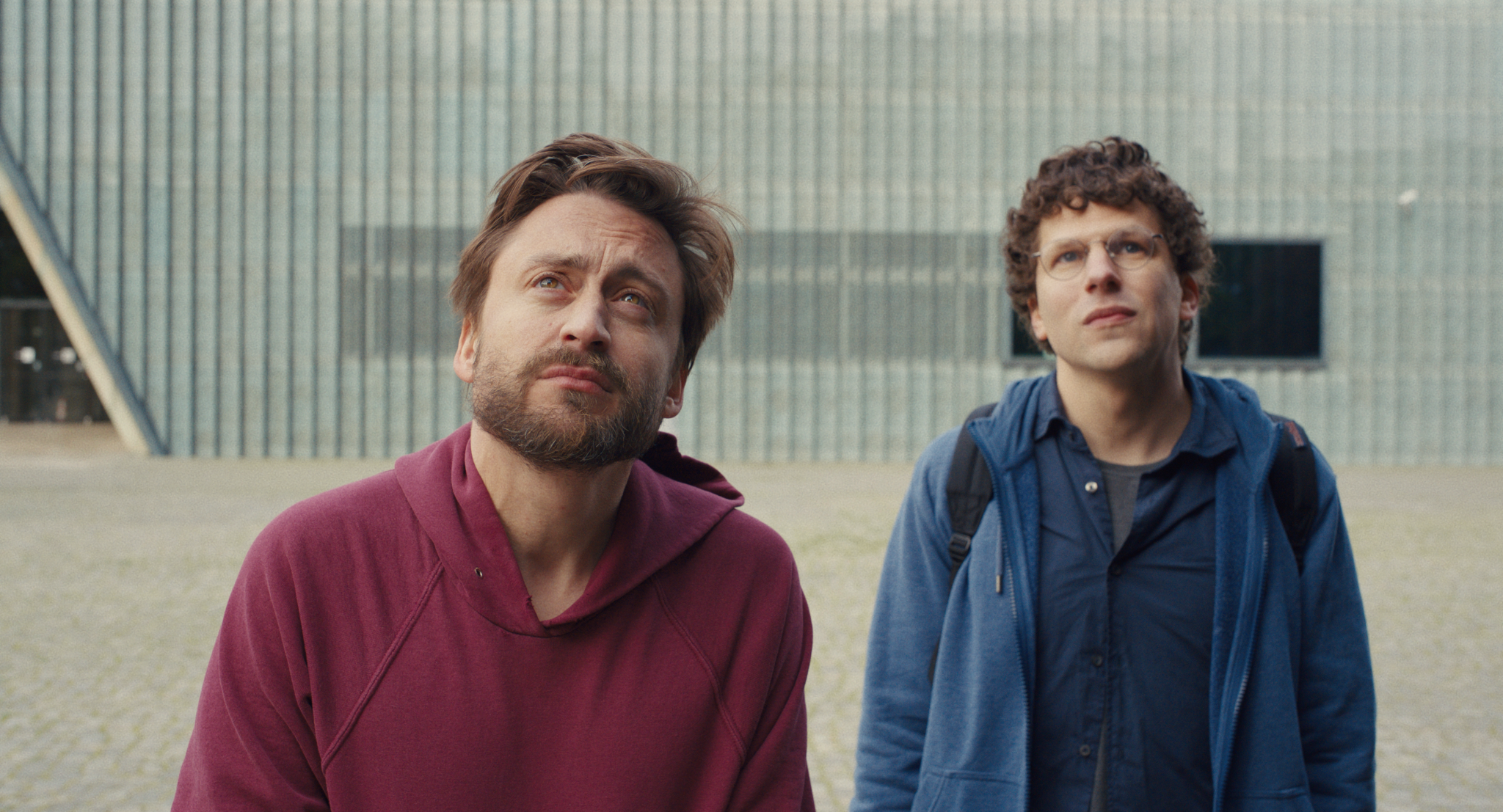

Marc Maron called his intensity ”contrary to a good time”, Jennifer Grey said his nervousness made her feel like the “least anxious person in the room”; costar Kieran Culkin said he’s “just an anxious person”. Discussing trauma travelogue A Real Pain, Katie Driscoll meets Jesse Eisenberg.
Jesse Eisenberg is often conflated with his characters: wry, neurotic, uptight. But when I talk to him he’s upbeat, funny and charming, and our interview feels like a competition of who can talk the fastest (it’s a novelty to be talking to someone and not to be asked to please slow down). He’s telling me about how he does vacation, which is to say, uniquely. One such trip down memory lane, to the Rwanda Genocide Museum, prompts him to start listing off sites of so-called “trauma tourism” he’s visited: the killing fields in Cambodia… the Museum Against Crimes of Humanity in Sarajevo… which made him think “it’s possible to be a human being while also exploring these places of great tragedy… that’s what I wanted to show with this movie”.
A Real Pain—a story he had been thinking of “for sixteen years or something”—is many things: the most humorous movie about the Holocaust (at least that I’ve ever seen); an odd-couple buddy-feature; an elegant study of pain, both monumental and personal. His second directorial effort following 2022’s When You Finish Saving the World, he also wrote and produced it, and it’s a tale remarkably close to home. A Real Pain is inspired by a 2008 trip to Poland to stay with his cousin who had survived the war, an experience which ended up becoming the play The Revisionist, replete with “a more selfish version of myself”, and Vanessa Redgrave as his cousin Maria, staged in 2013 to rave reviews in New York. The movie idea followed not long after, but it took a while to confirm what this would look like, “there was something about the claustrophobia of the play, all set in the one apartment, that made it work, that was not working when we went outside with it”.
Enter: Poland. A Real Pain shows a different side to the country (it was shot in Lublin and at concentration camp Majdanek), highlighting its beauty alongside the brutality of its Soviet architecture and bloody past. And updating the play from one apartment to the streets works: It’s like a Hal Ashby buddy-trip-road-movie, one where character and dialogue takes precedence. Like Eisenberg himself, it’s wordy. Basically, It’s the type of film you don’t see being made in Hollywood anymore.
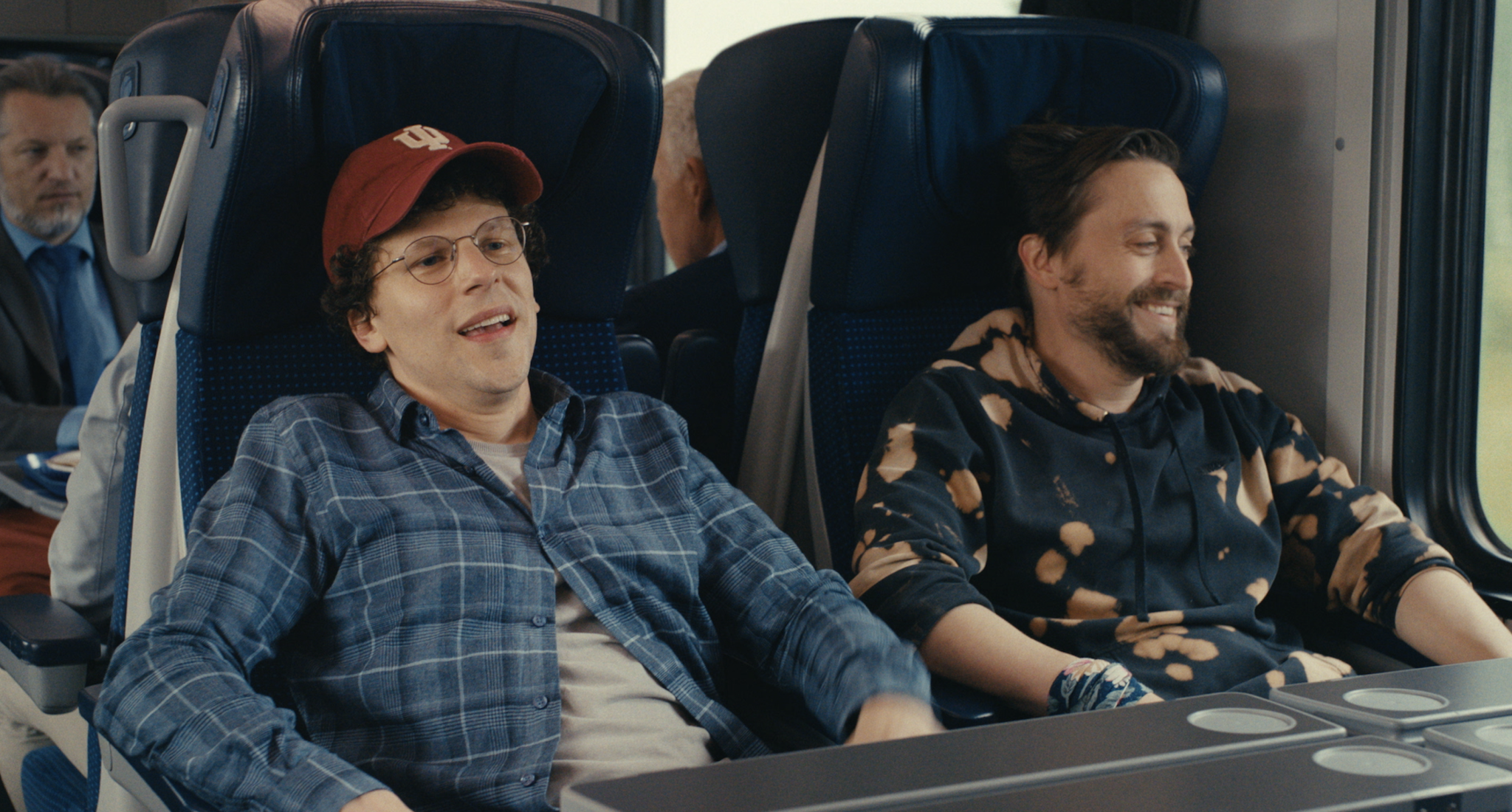
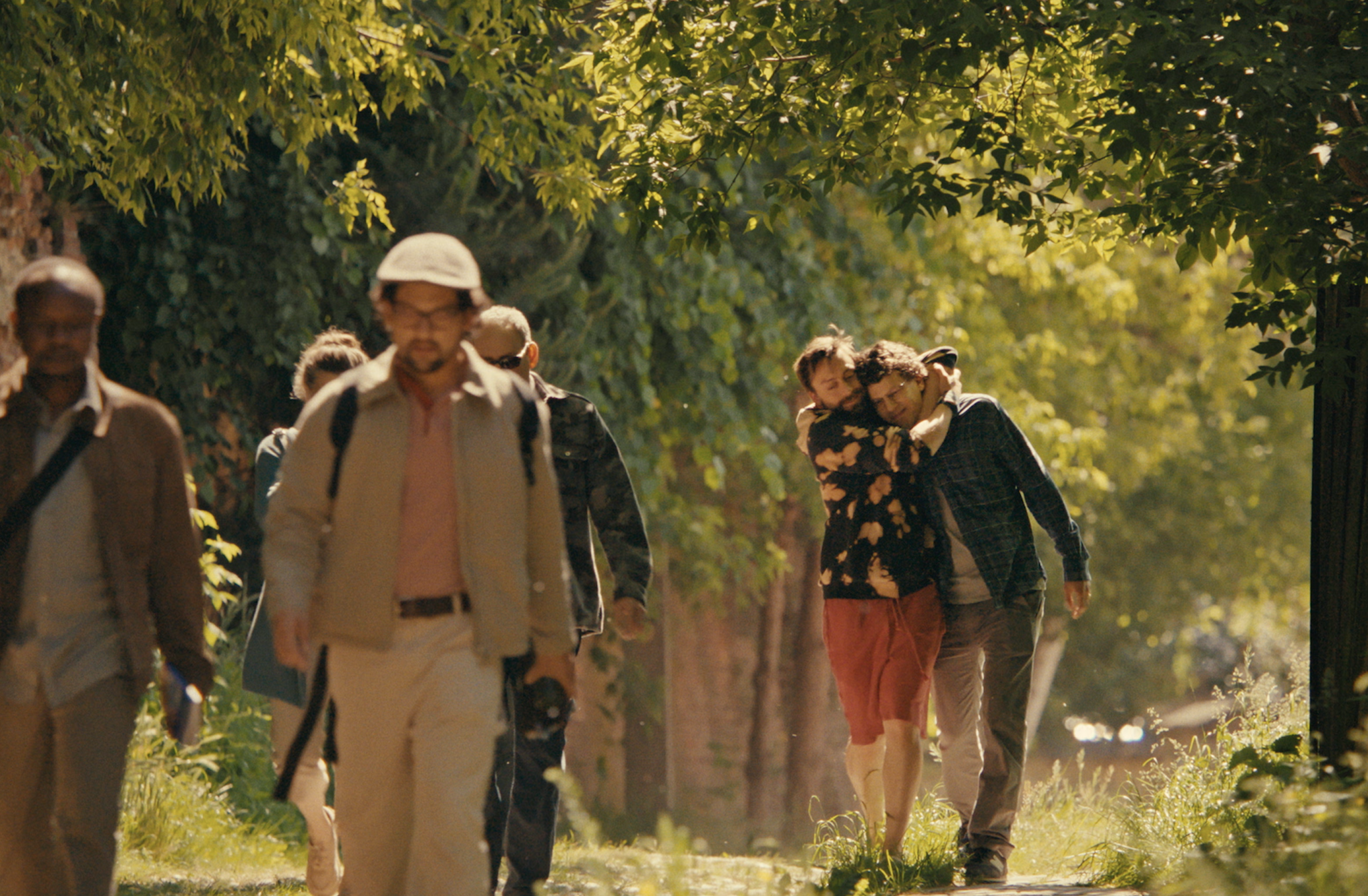
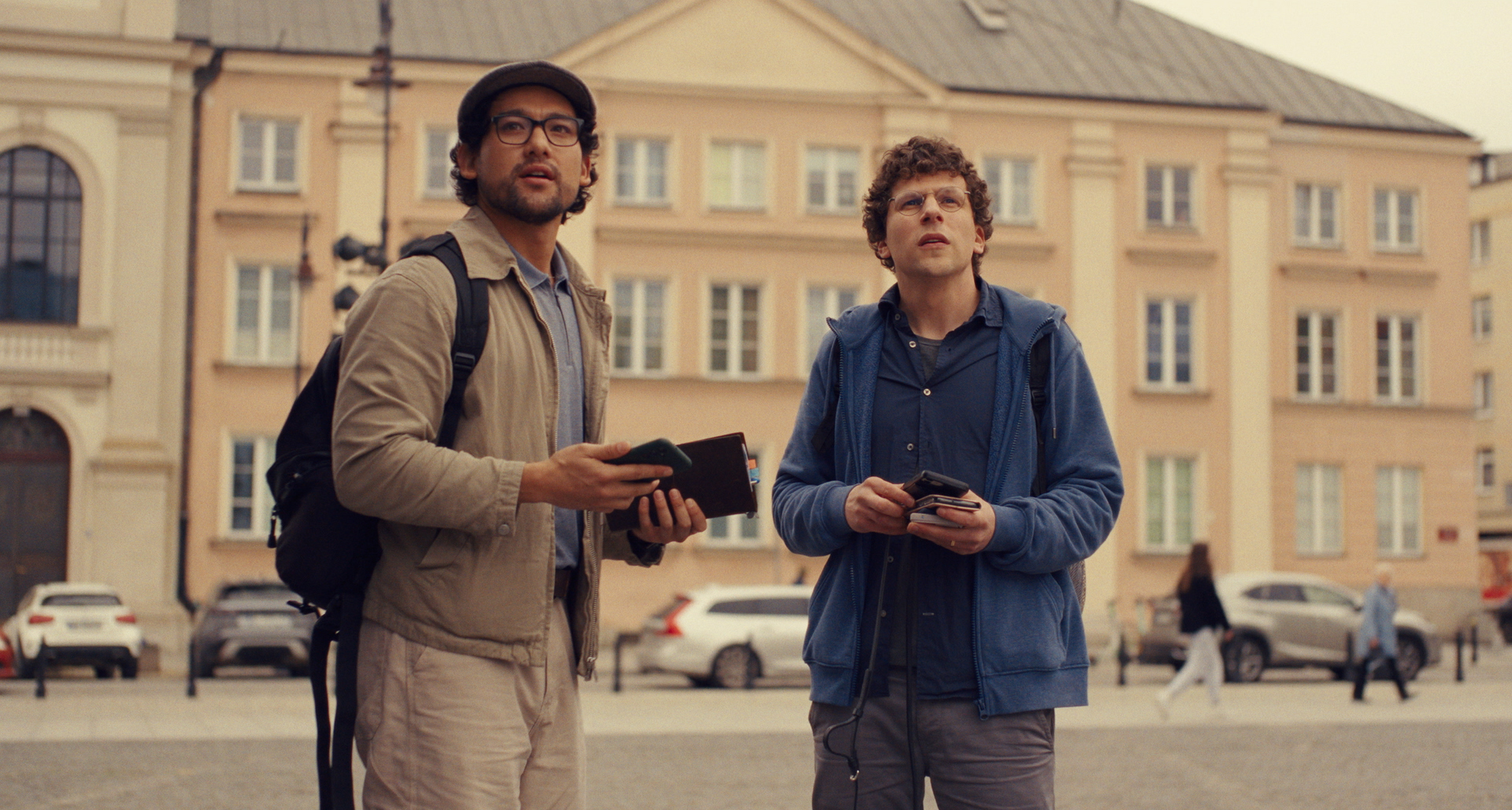

Eisenberg plays David, the neurotic, uptight do-gooder, a family man who works in digital ads sales and pops pills for his OCD. In contrast is David’s chaotic, mischievous and more free-spirited cousin Benji, impishly played by Kieran Culkin, who lives in his mum’s basement and as we discover, is recovering from a failed overdose.
The pair embark on a guided Holocaust tour around Poland led by kindly British philosemite James (Will Sharpe) with a rag tag group that includes glamorous divorcée Marcia (a delightful Jennifer Grey) and Rwandan genocide survivor Eloge (Kurt Egyiawan). There’s room for slapstick levity (they smuggle weed into Poland; they miss their train stop) alongside reverence (they visit the former home of their deceased Polish grandmother; they place stones on Jewish tombstones as a token of respect).
He wanted audiences to “see the Poland that I saw, not the Poland that I heard about growing up, because a lot of Jews from Polish heritage have a cynical attitude towards Poland because of the history. But what I saw of Poland, having the distance of somebody in the third generation, was remarkably different” And what was that? I ask. “A warm welcoming country with many non-Jewish Poles spending their lives memorialising the Jewish history of Poland. I wanted to show a movie that had that feeling”.
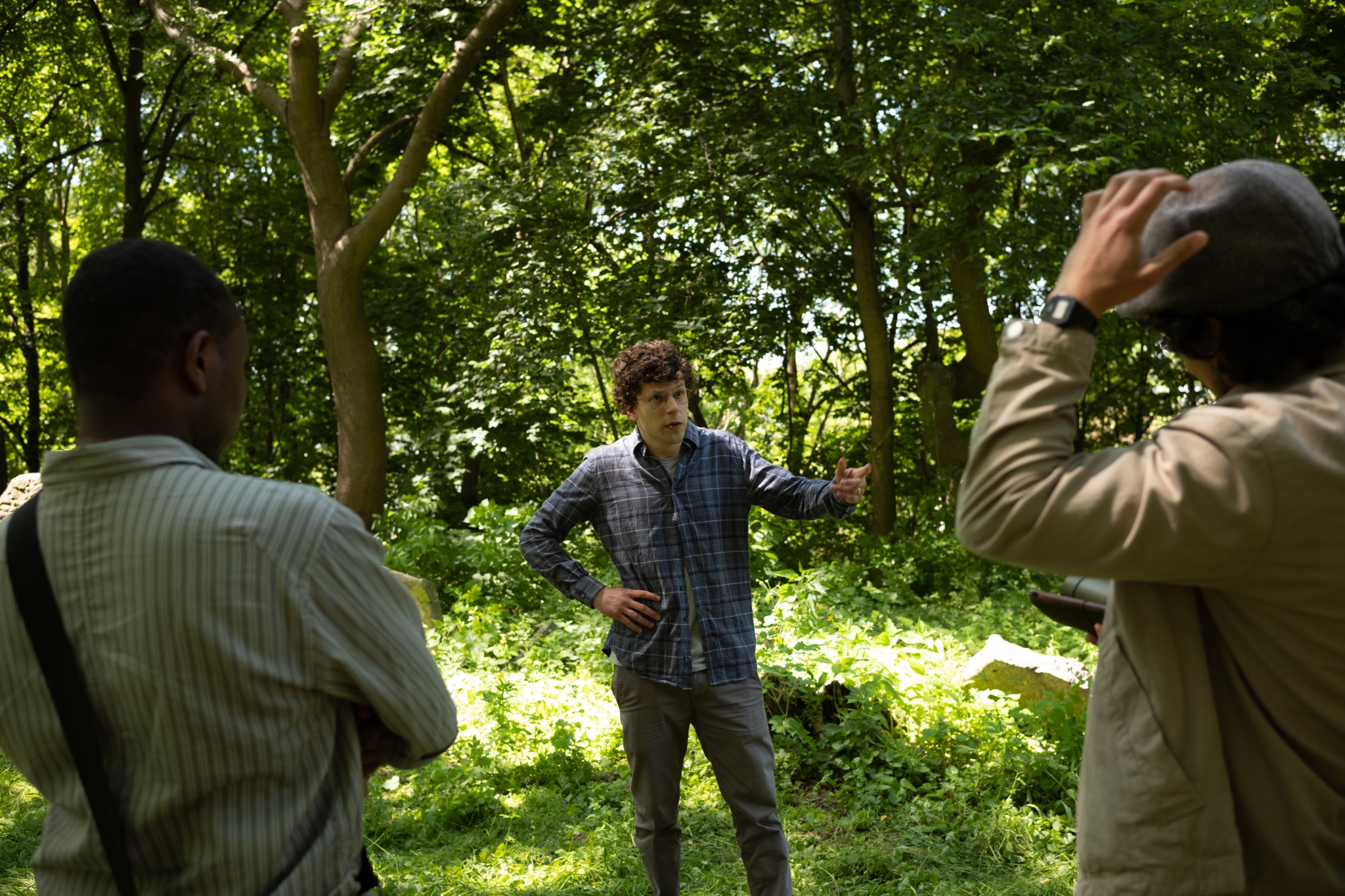
Jesse Eisenberg on the set of A Real Pain
A Real Pain does feeling with aplomb. Benji and David contend with the horrors of their shared past while also trying to process the individual pain of modern daily life. David both idolises and pities Benji, who is both charming jester bringing the group together and disrupter. One key scene shows Benji’s outburst on the first class carriage of a train, incensed at the tour’s champagne luxuries, so far removed from what their ancestors had to endure. His unpredictability clearly exhausts David, but Eisenberg believes that he means well. “We try to connect to the struggles of others in ways that are self serving, ways that are awkward, in ways that are well meaning, in ways that are successful, in ways that aren’t successful and Kieran’s character wants desperately to connect to the visceral pain of his ancestors but that’s just not possible… and he kind of throws a fit in the group because he wants us to see the pain of our ancestors but know that’s not how everybody wants to grieve”.
“I was not thinking about this movie existing in the pantheon of Holocaust movies. But it did occur to me as we were watching it with audiences that this is a movie that might feel more accessible to people who don’t know much about this history.”
Jesse Eisenberg
Refreshingly, humour is a thread woven throughout: Culkin and Eisenberg pinball off of one another with an electric and effortless ease, spicy bon mots like “money is like heroin for boring people” sail out of Culkin’s mouth. “I was conscious of the humor being something that made this movie feel more real to me and less like a kind of self serious Holocaust themed movie like most often see. The trick of it is to just be very reverential to the history and irreverent to the characters. So the characters can be full human beings who are flawed and funny and awkward and inappropriate. But they’re never irreverent about the history and I, as a writer, never irreverent about the history because how could you possibly be anything other than not only, reverent, but, humbled?” Eisenberg thinks that a lot of films about serious subjects can be alienating to audiences. “Because there’s a certain expectation you should know everything about it”, which isn’t the case here. “I was not thinking about this movie existing in the pantheon of Holocaust movies. But it did occur to me as we were watching it with audiences that this is a movie that might feel more accessible to people who don’t know much about this history.”
If there’s something he hopes for with the film’s impact, it’s that it encourages people “to appreciate their own life and perhaps become a more empathetic person”, which looks to have been accomplished. Benji and David’s complex connection has clearly resonated with audiences, who have been coming up to Eisenberg and saying things like “‘I’m going to call my brother and we’re going to take that Ireland trip we’ve always wanted to take. Or I’m going to go back to Haiti when things settle down to see where my family grew up’.. It’s been quite unexpected, and I like it because it means that people who are not from my specific cultural background are inspired by this movie to kind of become more curious about their family’s history as well, which to me, is always a great thing”. It seems then, that all that pain has been worth it.
A Real Pain will be in UK and Irish cinemas from 8th January 2025





